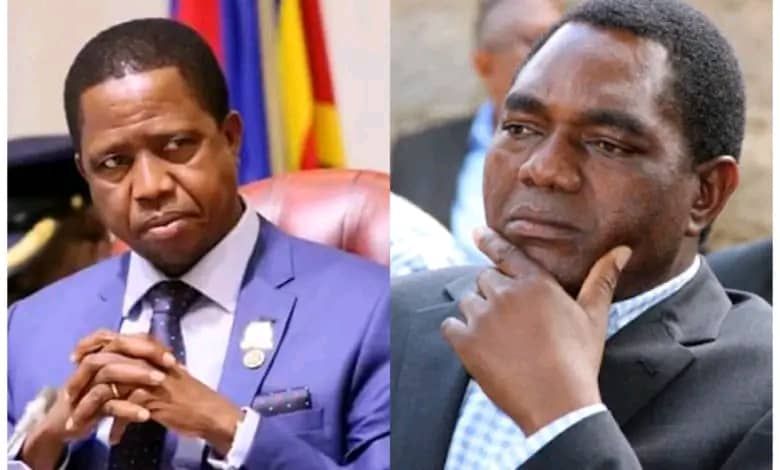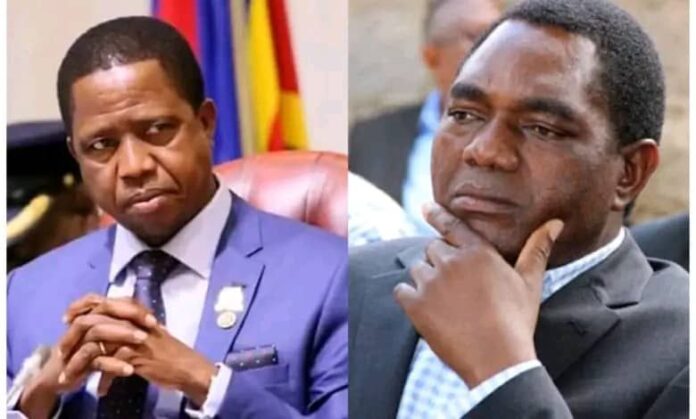By Burnett Munthali
The political rivalry between Edgar Chagwa Lungu and Hakainde Hichilema was one of the most defining dynamics of Zambia’s recent democratic history.
As President of Zambia from 2015 to 2021, Edgar Lungu led the Patriotic Front (PF), while Hakainde Hichilema, leader of the United Party for National Development (UPND), emerged as his fiercest opposition challenger.

The tension between the two leaders was not merely personal—it reflected deeper ideological, regional, and economic divides within Zambian society.
Lungu often presented himself as a guardian of national stability, leveraging state institutions, religious rhetoric, and a legacy of the late President Michael Sata to consolidate power.
In contrast, Hichilema positioned himself as a modernizing reformist with a technocratic approach, appealing particularly to Zambia’s urban youth, business sector, and regions feeling politically marginalized under PF rule.
The rivalry intensified during election periods, especially the hotly contested 2016 general elections, where allegations of vote rigging and post-election violence eroded public trust in Zambia’s democratic processes.
Following the 2016 polls, Lungu’s administration was accused of undermining democratic institutions, suppressing dissent, and limiting media freedoms—all actions perceived by Hichilema’s camp as targeted political persecution.
In 2017, tensions escalated dramatically when Hichilema was arrested and charged with treason for allegedly failing to give way to the presidential motorcade—a move widely condemned as politically motivated.
The international community, including human rights organizations and diplomatic missions, raised concerns over democratic backsliding under Lungu, amplifying calls for reforms and electoral transparency.
Meanwhile, Hichilema emerged from detention emboldened and increasingly viewed as a symbol of resistance to authoritarianism by a growing segment of the Zambian population.
Their rivalry was not only played out in political rallies and parliament but also through courtrooms, the media, and the streets—each episode contributing to Zambia’s polarized political atmosphere.
Throughout this period, the Zambian economy struggled with rising debt, inflation, and youth unemployment—issues both leaders sought to exploit or address in their competing narratives.
Lungu’s leadership style became increasingly associated with patronage and populism, while Hichilema projected an image of business-minded competence and international credibility.
The rivalry finally culminated in the 2021 general election, where Hakainde Hichilema defeated Edgar Lungu in a landslide victory, marking one of Africa’s most peaceful and significant democratic transitions.
The Lungu-Hichilema rivalry thus represents more than a clash of personalities—it encapsulates Zambia’s evolving struggle for accountable governance, regional equity, and democratic resilience.



